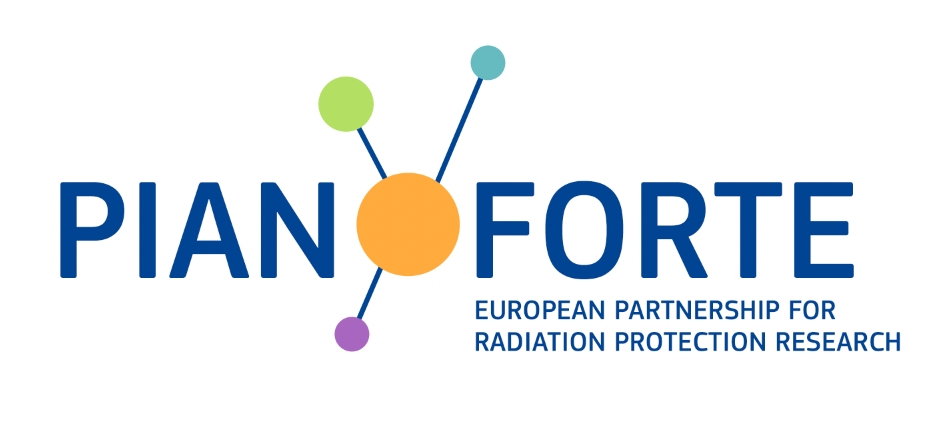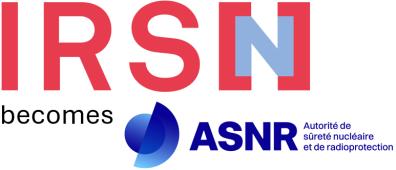PIANOFORTE partnership

Launched in 2022 with 58 partners and coordinated by ASNR, the European Partnership for Radiation Protection Research (PIANOFORTE Partnership) is co-financed by the European Union's EURATOM programme and the Member States of the participating countries.
By establishing a comprehensive pan-European scientific and technological foundation, PIANOFORTE aims to support a robust protection system and to develop consolidated, science-based policy recommendations for decision-makers across diverse sectors that utilise ionising radiation, both energy and non-energy related.
As of January 2025, it involves more than 100 partners from 23 European Union countries, 5 non-EU countries and the 6 European research platforms in radiation protection (MELODI, EURADOS, EURAMED, NERIS, ALLIANCE and SHARE).
Facts sheet
- Duration: 2022 - 2029
- Funding: total budget amounts to estimated € 46 million which is financed by the Euratom research and training programme by 65% and by member states and associated countries by 35%.
- As of January 2025, after two open calls (2023 and 2024), 108 partners involved (regulatory bodies, research centers and laboratories, universities, hospitals, professional associations, research platforms…).
- Contact
- Jean-Christophe Gariel, ASNR Deputy Director General
- Jacqueline Garnier-Laplace, ASNR European Radiation Protection Strategy Coordinator
- Website: https://pianoforte-partnership.eu
Objectives of the partnership
The PIANOFORTE partnership will contribute to priority European policies such as the fight against cancer (European Cancer Action Plan), the protection of health from environmental risks (Green Pact for Growth) and finally the improvement of anticipation and resilience in disaster situations (implementation of the Sendai Framework for Disaster Risk Reduction).
To this end, this European partnership promotes multidisciplinary research activities and innovations in a collaborative approach bringing together scientists, authorities and all stakeholders including civil society. Research projects, focused on clearly identified priorities, are selected through open calls for proposals that will focus on four broad themes:
- The improvement of patient radiation protection in relation to the use of ionising radiation in the medical field.
- A better comprehension of variability of individual response to exposure to ionising radiation.
- The understanding of mechanisms involved in chronic exposure to low doses of ionising radiation.
- The improvement of anticipation capacities and resilience in nuclear or radiological crisis situations and post-accident management.
Particular attention is paid to the involvement of all stakeholders (authorities, civil society, radiation protection practitioners, experts, etc.) in the priority setting of the scientific topics that will be the subject of open calls for proposals and with respect to the question of translating this research into actual impact for strengthened radiation protection. The overall objective is to meet and integrate the expectations of the wide set of radiation protection stakeholders as best as possible. This partnership also specifically aims to build bridges with research activities carried out at European level in the "non-Euratom" fields, in particular in the health and the security sectors.
Beyond these research activities, PIANOFORTE contributes to maintaining a sustainable capacity of expertise in radiation protection in Europe, which is internationally recognised, in particular by promoting the availability, use and sharing of existing state-of-the-art research infrastructures at the European level as well as by implementing education and training activities.
The partnership will build on previous work, and in particular on the results of the European joint programme CONCERT conducted under the H2020 framework programme which ended in 2020. It also benefits from the achievements of other European projects just completed or in progress such as MEDIRAD, HARMONIC, RadoNorm or SINFONIA.
Organization of the partnership
The PIANOFORTE partnership consists of 9 work packages:
- Coordination and management ensure administrative, financial, and reporting compliance with the European Commission (WP1 - ASNR, France).
- Research priorities for open calls are defined in alignment with stakeholder needs and updated roadmaps (WP2 - SCK CEN, Belgium).
- Stakeholder involvement integrates their priorities into research themes and fosters synergies with international initiatives (WP3 - BfS, Germany).
- Education and training develop skills in radiation protection through courses, scholarships, and exchanges (WP4 - SU, Sweden).
- Infrastructure and data management promote access to research facilities and ensure standardized, FAIR-compliant data handling (WP5 - UKHSA, UK).
- Communication and dissemination share research findings via digital platforms, targeting decision-makers and international organisations (WP6 - SURO, Czechia).
- Calls for proposals are organised and managed transparently, ensuring confidentiality and conflict-of-interest prevention (WP7 - NCBR, Poland).
- Ethics compliance ensures adherence to national and international standards, including data protection regulations (WP8 - ASNR, France).
- Funded research projects are monitored to ensure progress and alignment with PIANOFORTE’s objectives (WP9 - ANSR, France).
Participation of ASNR in research projects selected for funding
Nine research projects were selected during the Pianoforte 2023 Call for proposals, and ASNR research units are taking part in two of them:
-
SONORA - Safe, optimised and personalised radiology and radiotherapy procedures for pregnant patients (coordinated by FDMH, Croatia)
This research project focuses on improving the accuracy of fetal doses estimation in diagnostic and interventional radiology (DIR) and radiotherapy (RT) to optimise process and improve benefit/risk communication with the patient.
ASNR is participating in this project through its Ionising Radiation Dosimetry Laboratory (LDRI), and is in particular leading work package 1, which aims at reviewing the practices and available tools and methods used or recommended for fetal dose assessment in DIR and RT, and at identifying their advantages, limits and gaps.
More information: https://pianoforte-partnership.eu/sonora/
-
RRADEW - Resilience to radiological Events in Wartime (coordinated by CEPN, France)
This research project focuses on enhancing nuclear emergency preparedness, response, and recovery systems by developing methodological and technological approaches to strengthen resilience in the context of war or armed conflict disasters.
ASNR is participating in this project through its Human and Organisational Factors Laboratory (LSHS), and is leading work package 3, which aims to analyse the ability of organisations and communities to effectively respond to and recover from the impact of armed conflicts that may generate nuclear or radiological incidents.
More information: https://pianoforte-partnership.eu/rradew/
Eight research projects were selected during the Pianoforte 2024 Call for proposals, and ASNR research units are taking part in three of them:
-
CORNET - Deciphering the role of microenvironment after low-dose exposure for colon carcinogenesis and radiation risk (coordinated by UniCaen, France)
This research project aims to elucidate how low dose ionising radiation may influence non-mutational processes, with a particular focus on how alterations in the tissue microenvironment contribute to the progression of colon carcinogenesis.
ASNR is participating in this project through its radiotoxicology and experimental radiobiology laboratory (LRTOX) and is in particular in charge of work package 2 on effects of ionising radiation on colon carcinogenesis, the tissue microenvironment and extracellular vesicles in vivo.
More information: https://pianoforte-partnership.eu/cornet/
-
GIROSCOPE - Guidance for Innovative Reactor Off-Site Consequences, Planned and Emergency (coordinated by NCNR, Poland)
This research project aims to provide a robust scientific platform and framework for emergency preparedness and response (EP&R) and Environmental Impact Assessment (EIA) for novel nuclear reactors, and to provide guidelines, targeted at decision-makers in nuclear safety.
ASNR is participating in this project through its Aquatic and Atmospheric Transfer Department (STAAR) and contributes to WP3& WP4 with its expertise in atmospheric dispersion modelling and operational response.
More information: https://pianoforte-partnership.eu/giroscope/
-
CATAPULT - Comprehensive Assessment and Preparedness for Emerging Nuclear Technologies (coordinated by KIT, Germany)
This research project aims to evaluate and extend the state-of-art methods for the Environmental Impact Assessment (EIA), the Emergency Preparedness and Response (EP&R), and the risk communication when applied to Small (water-cooled) and Advanced Modular Reactors.
ASNR is participating in this project through its expertise on radiation protection of the public and the environment (SERPEN) and is leading work package 4 on the development of regulatory guidance.
More information: https://pianoforte-partnership.eu/catapult/
